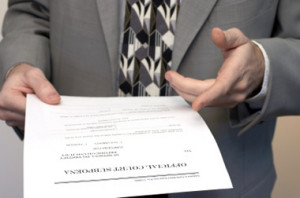 A private process server is a registered agent of the courts, and they are responsible for a major part of the court system. Because they play such a key role, the way that process servers operate is highly regulated. There are many guidelines that the process server must follow to stay within the law and to accurately serve papers. Here are a few of those rules.
A private process server is a registered agent of the courts, and they are responsible for a major part of the court system. Because they play such a key role, the way that process servers operate is highly regulated. There are many guidelines that the process server must follow to stay within the law and to accurately serve papers. Here are a few of those rules.
Identifying the Individual
The rules regarding identification of the individual to be served vary depending on the type of legal documents you are having delivered. In some cases, visual confirmation of identity is all that is required. In other cases the process server must see identification before leaving the papers. Good process servers know the laws and rules for serving papers for all types of cases.
Method of Delivery
Most of the time, legal papers that are being served must be handed directly to the person that is supposed to receive them. However, there are some exceptions to that rule. For example, evictions can be posted on the door, and no one has to be home to take the papers. Again, good process servers will know the rules for each type of legal document.
Civilians
Private process servers, although registered agents of the court, are still civilians. They are not law enforcement. Because of this, they must follow all of the same laws that everyone else follows. For example, they cannot go onto property that has no trespassing signs posted. They are also not able to physically restrain or attack any individual that is being served, except in self defense and only as deemed reasonable.
If you have legal papers that you need served, you need someone you can trust to know the laws about service of process. Contact us today for more information or to get started.





